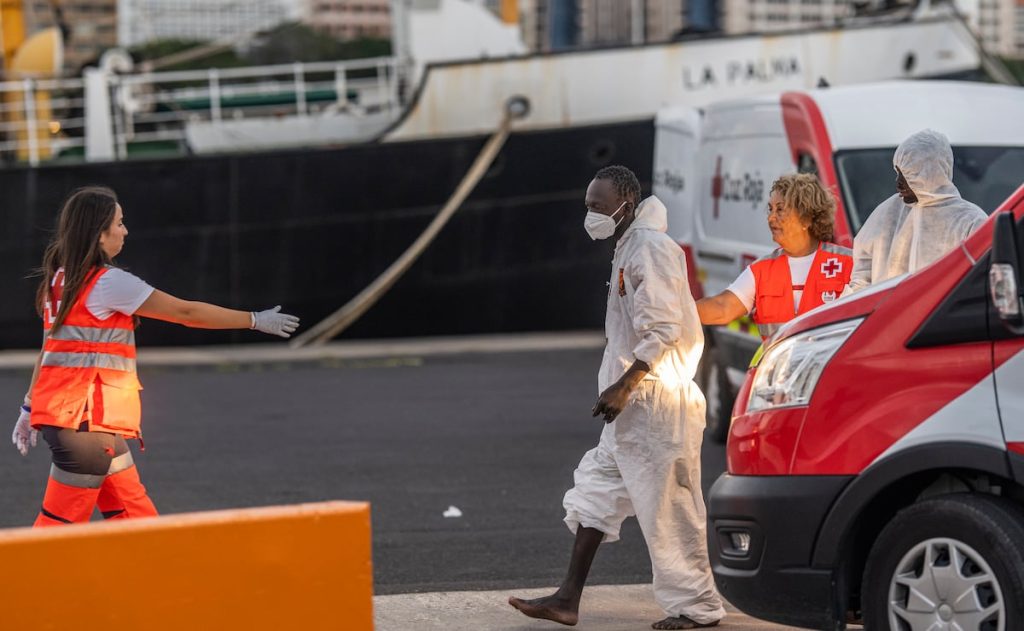On a Friday morning in Santa Cruz de Tenerife, hundreds of tourists disembarked from the cruise ship Insignia. They left behind a group of 64 Sub-Saharan Africans who had been rescued from a boat adrift in the Atlantic Ocean. The Red Cross attended to the migrants, including three children and a pregnant woman, as the tourists continued their journey. The migrants had spent nearly 20 days at sea, traveling from countries such as Mali, Senegal, Burkina Faso, and Gambia. The cruise passengers, mostly Americans and Mexicans, were shocked by the sudden encounter with the harsh reality of migration.
The luxurious cruise ship, with its wealthy passengers enjoying a six-month journey around the world, was forced to interrupt its idyllic voyage to assist the stranded migrants. The ship rescued the survivors and recovered the bodies of three deceased individuals, leaving two bodies behind due to rough seas. Despite the tragic circumstances, the crew of the Insignia managed to safely bring the migrants on board and provide them with food and shelter. The passengers on the ship were kept separate from the migrants, with makeshift partitions set up to ensure the migrants’ privacy and dignity.
The rescue operation in the middle of the Atlantic Ocean was a dramatic event for both the tourists and the migrants. Despite the difficult conditions, the crew of the Insignia successfully rescued the survivors and provided them with initial medical care. Unfortunately, two individuals required urgent medical attention, with one needing to be evacuated to the nearest medical facility. The migrants, weak and visibly exhausted, were cared for by the crew and the Red Cross, ensuring their recovery and well-being after their harrowing ordeal.
The passengers on the cruise ship were deeply affected by the experience, expressing feelings of empathy and sadness for the migrants. Many of them donated money, clothes, and shoes to help the survivors as they recovered from their traumatic journey. The migrants, initially in shock and weak from their ordeal, slowly began to regain their strength with the support of the Red Cross and medical personnel. Despite the challenging circumstances, the survivors were grateful for the assistance they received and hopeful for a better future in Europe.
As the tourists continued on their journey to Lisbon and eventually New York, the reality of migration and humanitarian crises lingered in their minds. The contrast between their luxurious travel and the desperate situation of the migrants highlighted the stark inequalities in the world. The sight of the funeral services transporting the bodies of those who did not survive served as a stark reminder of the risks and challenges faced by migrants seeking a new life. The migrants’ resilience and the passengers’ empathy left a lasting impact on all those involved, prompting reflection on the human cost of migration and the importance of compassion and solidarity in times of crisis.
The rescue operation off the coast of Tenerife brought together people from different backgrounds and cultures, united in a moment of crisis and compassion. The passengers, crew, and relief workers worked together to ensure the well-being of the migrants and provide support during their recovery. Despite the difficulties and challenges, the shared humanity and mutual respect shown during the operation demonstrated the power of kindness and solidarity in the face of adversity. The events in Santa Cruz de Tenerife served as a poignant reminder of the complexities of migration and the urgent need for global cooperation and humanitarian assistance to protect the most vulnerable members of society.


